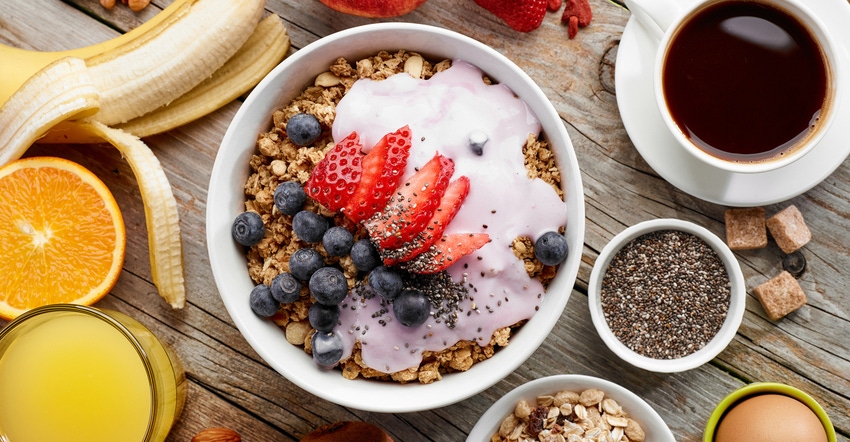How will consumers shop for food in 2018? This is what they had to say in a recent survey.
January 8, 2018

Label Insight, a product transparency company, released the results from a national consumer survey of 1,023 Americans conducted by Wakefield Research on eating habits in 2018. The survey found that most (67 percent) Americans will be prioritizing healthy or socially conscious food purchases in 2018. Their primary point of emphasis is cutting back on sugars, with nearly half of consumers (47 percent) planning to eat less sugar or buy more "no sugar added" products this year.
The next most prominent purchase factors are: emphasizing natural ingredient purchases, such as those with "no artificial colors or flavors" (37 percent) and shopping for more sustainable products and ingredients (22 percent).
While everyone is eager to get a better line of sight into the food they eat, millennials and Baby Boomers are in two different aisles when it comes to what they most want from brands and retailers in 2018. Baby Boomers (33 percent) are more than twice as likely as millennials (15 percent) to prioritize wanting product labels that provided information they can better understand as the top priority, while millennials (17 percent) are nearly twice as likely as Baby Boomers (9 percent) to point to more organic food and product options as the most important change brands and retailers could make.
This online survey of 1,023 nationally representative U.S. adults, ages 18+, was conducted by Wakefield Research in December 2017. Here are four big things changing the way consumers shop for food.
Shaking the sugar habit
Baby Boomers and women are by far the most likely to simmer down the sweetness, with 53 percent of Boomers planning to cut down on sugary foods compared to only 40 percent of millennials. More than half (52 percent) of women will be looking to reduce their sugar intake, while only 41 percent of men feel the same.
Shopping sustainably
When it comes to shopping with a social consciousness in 2018, men are particularly keen on knowing that the food they chose is sustainable, with 26 percent spotlighting sustainability in their food choices compared to only 19 percent of women. Millennials are also emphasizing sustainability more than older generations, 26 percent compared to 17 percent of Gen Xers.
Deciding diets
For many Americans, maintaining healthy or socially conscious eating habits will mean choosing a gluten-free, vegan, ketogenic or Paleo diet to serve as a guide, but these methods are not equally appreciated among the generations. In fact, 1 in 5 (20 percent) millennials report they are likely to follow one of these diets in 2018, while only slightly more than 1 in 10 (11 percent) of Baby Boomers expect to do likewise. While Baby Boomers lead the pack when it comes to cutting out sugar, they may be less eager to follow the stricter rules of these popular diets.
Seeking label transparency
To help them better understand what's in the products they use and consume, Americans want better-defined and more transparent food labels. Indeed, the primary change consumers want to see from food brands and retailers is product labels that provide information they can better understand in 2018 (25 percent). The next most pressing need is greater transparency into ingredients (14 percent) and easier-to-identify "clean" or minimally processed products (14 percent).
"It is no surprise that the majority of consumers are asking brands and retailers to provide more insight and clarity about their products," said Patrick Moorhead, chief marketing officer at Label Insight. "With so many Americans seeking healthy and socially-conscious food, knowing what is in it and how it is processed is a more important selling point now than ever. The fact is brands and retailers who want to retain or gain market share will need to comply with these consumer demands or risk being left behind."
Source: Label Insight
You May Also Like


